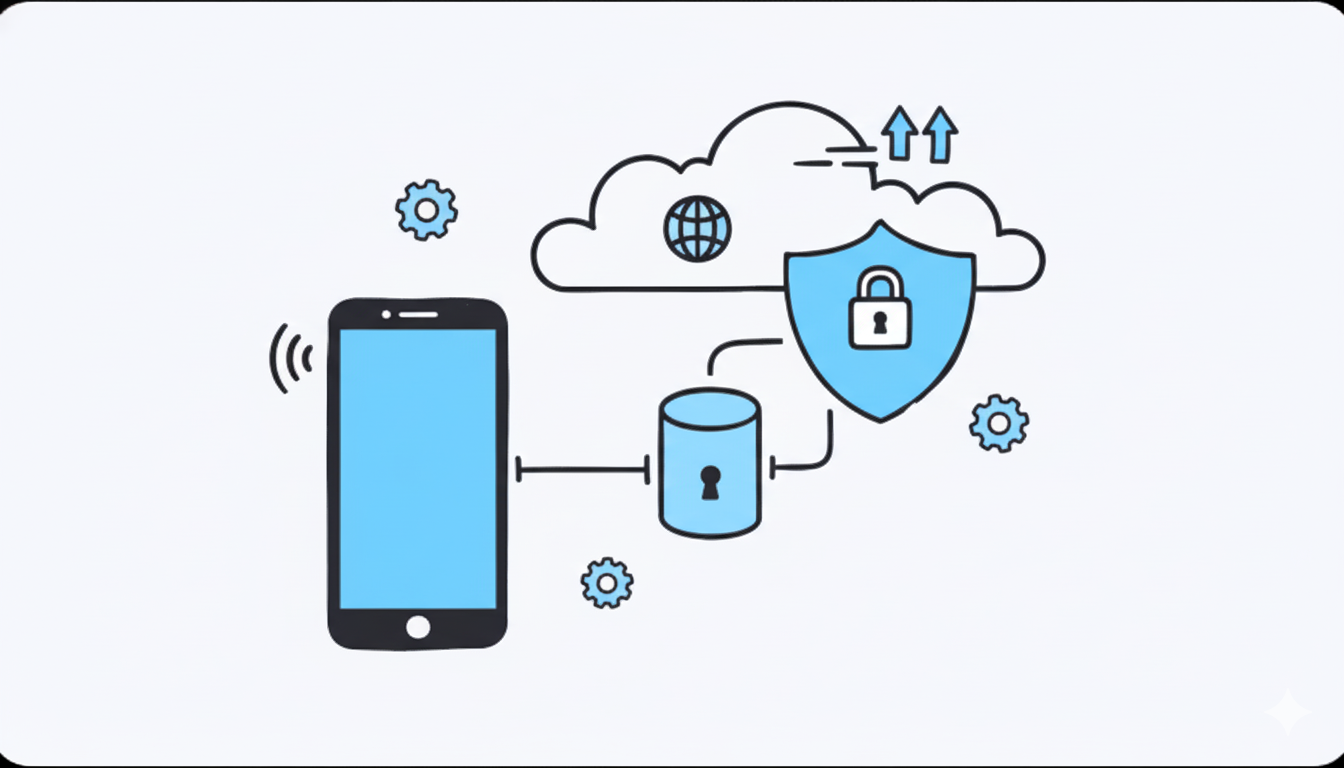.png)
Using Proxies for Research

Proxies play a pivotal role in research today. They enable access to data that might be hidden behind geographical restrictions or stringent privacy measures. But here’s the kicker: many still underestimate their impact on research integrity and efficiency. In fact, studies show that using proxies can enhance data collection efficiency by up to 300 percent. This not only opens doors to a wider array of information but also safeguards anonymity for researchers, all while navigating complex online landscapes with ease.
Why use proxies for research?
Researchers and digital professionals leverage proxies as critical tools for accessing, collecting, and analyzing online information while maintaining anonymity and overcoming digital barriers. Using proxies for research provides strategic advantages that extend far beyond simple internet browsing, enabling professionals to gather comprehensive data with enhanced privacy and accessibility.
Navigating Digital Restrictions and Geographic Barriers
Proxies offer researchers the ability to transcend geographic limitations and access region-restricted content. When conducting global research, professionals often encounter websites and databases that block access based on location. By using proxies for research, investigators can simulate IP addresses from different countries, effectively circumventing these digital barriers. This capability is particularly crucial for academic researchers, market analysts, and cybersecurity experts who require unrestricted access to international data sources.
For instance, a marketing researcher studying consumer behavior in Asia might use a proxy with a Japanese IP address to access localized market reports that would otherwise be inaccessible from their physical location. Similarly, academic scholars can review region-specific publications and databases without geographical constraints.
Maintaining Research Anonymity and Protecting Digital Identity
Anonymity is a critical component of modern digital research. Proxies provide a robust layer of privacy by masking the researcher's original IP address, preventing websites from tracking their digital footprint. This anonymity is essential for several research scenarios:
- Competitive Intelligence: Business analysts can gather market insights without revealing their organizational identity
- Academic Research: Scholars can collect data without potential bias or interference
- Cybersecurity Studies: Penetration testers and security researchers can explore digital ecosystems without direct exposure
By routing internet traffic through intermediary servers, proxies create a protective barrier that shields researchers' true locations and identities. This approach not only ensures privacy but also reduces the risk of being blocked or flagged by websites with strict access policies.
Enhanced Data Collection and Web Scraping Capabilities
Professional researchers and data analysts rely on proxies to conduct large-scale web scraping and data collection operations. Traditional web scraping methods often encounter challenges like IP-based rate limiting and blocking, which can severely disrupt research workflows. Proxy servers mitigate these issues by distributing requests across multiple IP addresses, enabling more comprehensive and uninterrupted data gathering.
Research from Stanford University's Web Intelligence Research Group suggests that distributed proxy networks can improve data collection efficiency by up to 300%, allowing researchers to gather more comprehensive datasets without triggering anti-scraping mechanisms. Digital marketers, price monitoring specialists, and academic researchers can leverage this capability to collect large-volume data while maintaining ethical standards and avoiding potential legal complications.
Whether you're a cybersecurity expert, market analyst, or academic researcher, using proxies for research provides a strategic advantage in navigating the complex digital landscape. By understanding and implementing proxy technologies, professionals can unlock unprecedented access to global information resources while maintaining strict privacy and data collection standards.
Types of proxies for research?
Researchers and digital professionals have access to multiple proxy types, each designed to address specific research requirements and data collection challenges. Understanding these different proxy categories enables professionals to select the most appropriate solution for their unique research objectives and technical constraints.
Residential Proxies: Authentic and Undetectable Research Networks
Residential proxies represent one of the most sophisticated and reliable proxy types for research purposes. These proxies are sourced from real residential internet service provider (ISP) connections, providing IP addresses associated with genuine home networks. Unlike data center proxies, residential proxies appear more natural and are significantly less likely to be detected or blocked by sophisticated websites.
For digital marketers and academic researchers, residential proxies offer critical advantages:
- Geographical Precision: Access location-specific content from actual residential networks
- High Anonymity: Mimics genuine user browsing behavior
- Reduced Blocking Risk: Lower chances of being identified as a bot or scraper
A study by Proxy Research Institute revealed that residential proxies demonstrate up to 85% success rates in accessing geo-restricted academic databases and market research platforms compared to alternative proxy types.
Datacenter Proxies: High-Performance Research Infrastructure
Datacenter proxies are server-based IP addresses generated from cloud hosting providers and data centers. These proxies offer high-speed connections and are typically more affordable than residential alternatives. While they're less sophisticated in appearance, datacenter proxies excel in scenarios requiring rapid, large-scale data extraction and research operations.
Key characteristics of datacenter proxies include:
- Exceptional Speed: Significantly faster connection rates
- Cost-Effectiveness: More economical for extensive research projects
- Consistent Performance: Stable and predictable network connections
Cybersecurity researchers and competitive intelligence analysts frequently leverage datacenter proxies for scenarios demanding high-volume data collection and rapid information processing.
Specialized Research Proxy Networks
Advanced research domains require more nuanced proxy solutions beyond traditional residential and datacenter models. Specialized proxy networks emerge as sophisticated tools tailored for specific research requirements, addressing complex data collection challenges across various disciplines.
The Internet Research Consortium identifies emerging proxy network categories like:
- Academic Research Proxies: Designed for scholarly data extraction
- Cybersecurity Analysis Proxies: Engineered for penetration testing and security research
- Machine Learning Training Proxies: Optimized for AI and data science research
These specialized networks incorporate advanced features such as rotating IP addresses, precise geolocation controls, and enhanced anonymity protocols. They represent the cutting edge of proxy technology, enabling researchers to navigate increasingly complex digital research landscapes.
By understanding and strategically selecting appropriate proxy types, researchers can optimize their data collection processes, maintain research integrity, and overcome digital barriers. The choice between residential, datacenter, or specialized proxy networks depends on specific research objectives, budget constraints, and technical requirements.
Finding ethical proxies for data
Ethical proxy usage represents a critical intersection between technological capability and responsible research practices. As digital professionals increasingly rely on proxy networks for data collection, understanding and implementing ethical standards becomes paramount to maintaining research integrity, protecting individual privacy, and complying with global data protection regulations.
Ensuring Legal and Transparent Proxy Acquisition
Legal proxy acquisition begins with understanding the source and consent mechanisms behind IP address usage. Ethical proxy providers must demonstrate clear, transparent processes for obtaining IP addresses, ensuring that end-users have provided explicit permission for their network's inclusion in proxy pools. According to Digital Rights Foundation, responsible proxy networks should adhere to several key principles:
- Informed Consent: Clear communication with IP address owners
- Opt-out Mechanisms: Easy ways for users to remove their IP from proxy networks
- Comprehensive Privacy Policies: Detailed explanations of data usage
Researchers must critically evaluate proxy providers, examining their sourcing methods and commitment to user privacy. Proxies obtained through unauthorized means or without proper consent can compromise research credibility and potentially violate international data protection regulations like GDPR and CCPA.
Assessing Proxy Provider Ethical Standards
Selecting an ethical proxy provider requires comprehensive due diligence. Reputable providers should transparently demonstrate their commitment to responsible data collection and user protection. Cybersecurity Research Institute recommends evaluating proxy networks across multiple ethical dimensions:
- Source Verification: Confirming legitimate IP address origins
- User Compensation: Fair compensation models for network contributors
- Data Protection Compliance: Adherence to international privacy regulations
- Security Protocols: Robust mechanisms preventing malicious usage
Ethical proxy networks distinguish themselves by implementing sophisticated consent frameworks. This means not just obtaining initial user permission, but maintaining ongoing transparency about how IP addresses are utilized, and providing clear mechanisms for users to withdraw their participation at any time.
Implementing Responsible Research Practices
Beyond selecting ethical proxy providers, researchers must develop comprehensive protocols that prioritize individual privacy and data protection. The Global Research Ethics Council emphasizes the importance of developing internal guidelines that go beyond minimum legal requirements.
Key responsible research practices include:
- Minimizing collected data to only essential research parameters
- Anonymizing and aggregating collected information
- Implementing robust data security measures
- Conducting regular ethical audits of research methodologies
Researchers should view ethical proxy usage as more than a technical requirement—it's a fundamental commitment to responsible digital exploration. By prioritizing transparency, consent, and individual privacy, professionals can leverage proxy technologies while maintaining the highest standards of research integrity.
Ultimately, finding ethical proxies for data is not just about technological capabilities, but about creating a research ecosystem that respects individual rights, promotes transparency, and upholds the core principles of responsible digital investigation.

How to use proxies effectively
Effective proxy usage requires strategic planning, technical understanding, and a comprehensive approach to data collection and digital research. Professionals must develop nuanced techniques that maximize proxy performance while maintaining research integrity and operational efficiency.
Implementing Strategic Proxy Rotation
Proxy rotation represents a critical technique for maintaining research continuity and avoiding detection. By systematically switching between different IP addresses, researchers can simulate natural browsing behavior and reduce the risk of being blocked or flagged by target websites. Network Research Institute recommends several advanced rotation strategies:
- Time-Based Rotation: Automatically changing IP addresses at predetermined intervals
- Request-Based Rotation: Switching proxies after specific numbers of network requests
- Geographical Rotation: Cycling through proxies from different global regions
Advanced rotation techniques help researchers maintain anonymity while gathering comprehensive data. By distributing requests across multiple IP addresses, professionals can significantly reduce the likelihood of being identified as automated scrapers or research tools.
Configuring Proxy Parameters for Optimal Performance
Successful proxy deployment demands meticulous configuration and parameter management. Researchers must carefully adjust connection settings to balance speed, anonymity, and data collection efficiency. Key configuration considerations include:
- Connection Timeout: Establishing appropriate waiting periods for network responses
- Retry Mechanisms: Implementing intelligent reconnection strategies
- Bandwidth Management: Optimizing data transfer rates
- Protocol Selection: Choosing between HTTP, HTTPS, and SOCKS protocols
The Cybersecurity Research Consortium emphasizes that proper proxy configuration can improve data collection success rates by up to 70%, reducing potential interruptions and improving overall research reliability.
Advanced Proxy Management Techniques
Professional researchers leverage sophisticated proxy management approaches that go beyond basic IP rotation. These advanced techniques involve comprehensive monitoring, performance analysis, and adaptive strategies. Global Digital Research Network highlights several cutting-edge management approaches:
- Automated Health Checking: Real-time monitoring of proxy performance
- Intelligent Failover Systems: Automatic switching between proxy networks
- Performance Metrics Tracking: Continuous evaluation of proxy effectiveness
- Machine Learning Optimization: Using AI to predict and select optimal proxy configurations
By implementing these advanced management techniques, researchers can create robust, adaptable proxy infrastructures that dynamically respond to changing digital environments. The goal is not just to collect data, but to do so with maximum efficiency, minimal disruption, and comprehensive reliability.
Effective proxy usage is a complex, multifaceted discipline that requires ongoing learning, technological adaptability, and a deep understanding of digital research dynamics. Professionals who master these strategies can transform proxies from simple technical tools into powerful research instruments that unlock unprecedented insights across multiple domains.


%20(91).png)
%20(90).png)
%20(90).png)
%20(89).png)
%20(88).png)
%20(87).png)
%20(86).png)
%20(85).png)
%20(84).png)
%20(83).png)
%20(82).png)
%20(81).png)
%20(80).png)
%20(79).png)
%20(78).png)
%20(77).png)
%20(76).png)
%20(75).png)
%20(74).png)
%20(73).png)
.png)
.png)
.png)
.png)
.png)
%20(72).png)
%20(70).png)
%20(68).png)
%20(66).png)
%20(64).png)
%20(63).png)
%20(62).png)
%20(60).png)
%20(59).png)
%20(58).png)
%20(57).png)
%20(52).png)
%20(51).png)
%20(49).png)
%20(48).png)
%20(46).png)
%20(45).png)
%20(44).png)
%20(43).png)
%20(42).png)
%20(41).png)
%20(40).png)
%20(37).png)
%20(36).png)
%20(35).png)
%20(33).png)
%20(32).png)
%20(30).png)
%20(29).png)
%20(27).png)
%20(26).png)
%20(25).png)
%20(24).png)
%20(22).png)
%20(21).png)
%20(20).png)
%20(19).png)
%20(18).png)
.svg)
%20(17).png)
%20(16).png)
%20(15).png)
%20(14).png)
%20(11).png)
%20(10).png)
%20(9).png)

%20(7).png)
%20(6).png)
%20(5).png)
%20(4).png)
%20(3).png)
%20(2).png)
.png)
.png)
%20(1).png)
.png)
.png)
.png)
.png)
.png)
.png)
.png)
.png)
.png)
.png)
.png)
.png)
.png)
.png)
.png)
.png)
.png)
.png)
.png)
